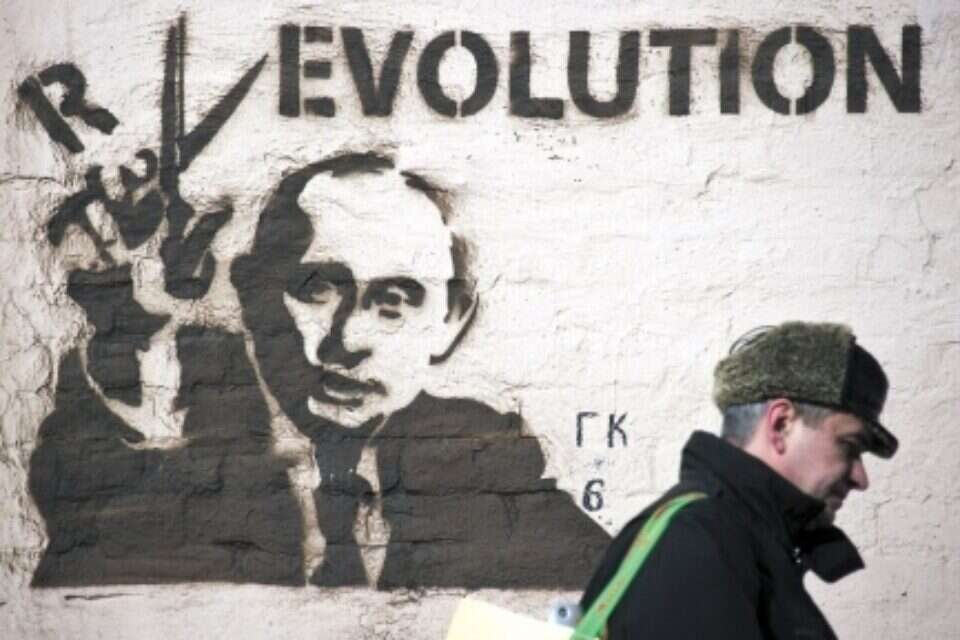The previous decade in the Middle East was undoubtedly Russia's decade, and even more so Putin's. This decade was marked by Moscow's return to play an active role in our region, especially in Syria, where the Russians employed a military force that toppled the revolt against the regime of Bashar al-Assad and restored Russia's status and prestige in the Arab world.
Putin, therefore, has become, someone whom everyone desires to criticize and is careful about his dignity. The leaders of the region rushed to make the pilgrimage to Moscow and greeted him, starting with the leaders of Iran, to Turkish President Erdogan and Arab leaders, and even the rulers of the Gulf states, longtime allies of the Americans, and finally, also Israel's leaders, first and foremost Benjamin Netanyahu.
Lacking both willpower and ability, constantly fearing for the lives of its soldiers and fearful of exercising its power against its enemies, Russia was perceived as acting with determination and blood-curdling brutality on the way to achieving its goals.
The war in Syria was a preview and even a test of tools for the war in Ukraine and it seems that it even made it possible, since Putin believed that just as the world did not respond to the harm caused by his forces to civilians in Syria, so there will be no response when the Russians use the same means and methods in Ukraine as well.
But even then it was evident that Russian power was imaginary power, and that Moscow was nothing but a paper tiger, and its power was like a tower of cards with no real back. First, the Russian military presence in the Middle East remained limited and insignificant compared to that of the United States. And in fact, every time the Americans sneezed, the Russians flinched back. Russia's achievement in Syria was mainly image-related, since the Russians employed a limited air force there, even though it operated freely and therefore severely harmed the civilian population. But the fact remains that the Russian ground fighting was left to their allies, the Iranians – a partnership that will be repeated in the case of Ukraine, where Tehran has mobilized to supply drones to Moscow.
Second, no less important is the fact that Putin's status comes to him because of his image as a threatening and brutal neighborhood bully with whom it is better not to get involved. But the Arabs also understood that apart from that, Putin had nothing else to offer – no ability to provide economic aid and no ability to serve as a mediator in political conflicts. It seems that only Israel remains captive to its fears of Putin and to an admiration that knows no bounds for his aggressiveness.
But then came the war in Ukraine, and cracks began to appear in the building of strength and resilience projected by Moscow.
Some of the propaganda and lies channels, such as Al-Jazeera and the Iranian and Syrian media, reported, as in the Six-Day War, that Moscow had the upper hand in the war, but on the ground the reality was completely different. It seems that the favorable coverage of Russia's war in Ukraine stemmed in no small part from the desire to challenge the United States, since only the Americans allow their protégés, Qatar or Saudi Arabia and even Turkey, to spit in their faces while at the same time continuing to enjoy the protection and assistance provided by the United States.
But then came the unbelievable, and armored columns of Wagner force began making their way unhindered towards Moscow. In the Arab world, where the ruler is omnipotent and challenged as a threat that could lead to his downfall, such scenes were perceived as an expression of weakness and incompetence, since a ruler, according to the Arab view, is not supposed to reconcile with his domestic enemies or forgive them.
The rebellion in Russia is over, and Putin remains in office for the time being. But his image in the Arab world has suffered a blow that will be difficult to repair. But as in the past, the question is not what Russia will do, but what the United States will do. Does Washington have the will and power to continue managing Middle East affairs, or is it determined to abandon it and leave behind a vacuum that it will rush to fill if not Moscow, then China and, more importantly, Iran?
Wrong? We'll fix it! If you find a mistake in the article, please share with us

